

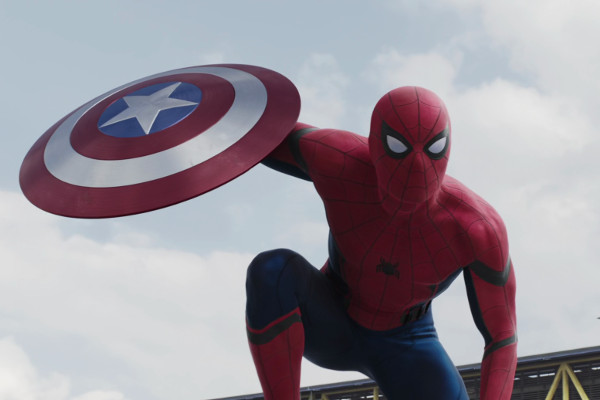
Article originally published in April 2018: Regularly updated with each new release, and updated July 2025 to include a look at Thunderbolts* and Fantastic Four: First Steps.
With the release of every new Marvel Comic movie, many websites are covering the series and ranking the interconnected "Cinematic Universe" entries. Before you can say "sell out", The Anorak Zone casts its own view on the franchise, with spoilers possible under some entries.
The series is currently available to buy online from Amazon.
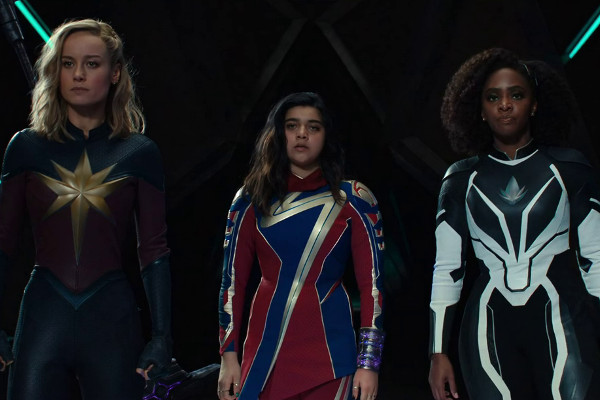
The Marvels actually starts out as a reasonable effort - likeable, even. But after a bombardment of the usual glib, meta "humour", jarringly combined with characters breaking out the crying towel, you may find your goodwill all but evaporated by the time the mercifully brief 1 hour 45 minute runtime comes to an end. (Said runtime includes a post-credits scene with a guest cameo, featuring the most shockingly bad lip synch CGI yet seen in these films.)
The problem with most of the MCU inhabitants feeling "emotion" is that they only exist as two-dimensional "comedy" characters one minute, the next we're supposed to believe in their psychological depth. It jars, as does the usual green screen shitnanigans whereby the most powerful hero in the Marvel Universe gets two team mates and still takes a beating off Vod from Fresh Meat.
The most intriguing thing about this film is why it bombed at the box office. Not bombed as in "might be lucky to just about scrape back its budget", but actually lost money. The first Captain Marvel film was, at the time of this one's release, one of the ten most financially successful MCU movies - fifth if not counting the team movies. How did a box office of over 1.1 billion dollars sink to just over $200m for the next chapter?
Possibly it was lack of advertising due to the strikes, or maybe the movies once again mining the TV shows for content instead of the other way around. Kamala Khan is fairly well introduced even for those who haven't got six hours to sit through a TV series as homework beforehand -
Monica Rambeau less so. Oddly, considering a (pre-powers) version of Monica was in the first film, it still feels like we get to know Kamala more.
"Superhero fatigue" was potentially a factor, though critics were warning that this was going to happen even before Endgame made over two billion dollars. There is the issue that it followed 32 other movies where pretty much the same plot and act structure took place in at least 20 of them - there's no surprises, and, crucially, no sense of genuine peril. The Marvel Cinematic Universe has been a series of, to be frank, largely average movies, but they were very much part of the cultural zeitgeist. From 2012-2019 the series was so ubiquituous in pop culture that I even tried to shamelessly cash in with this article. But from 2021 onwards that's been no longer the case, and the future will tell us if that's the way it'll remain.
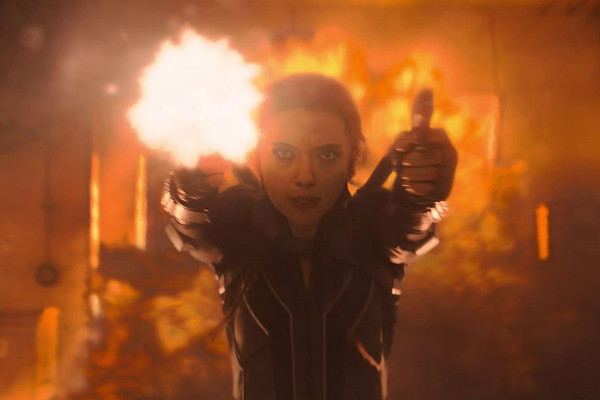
No one should be under any illusion that movies aren't there to make a profit, but the behaviour of studios under an unprecedented global lockdown was a blatant display of the quest for the dollar. With a huge percentage of the globe trapped indoors and isolated, it would have been a gesture to give something back. Not necessarily take a huge loss, but at least work some kind of deal with streaming companies to get the films out to keep people entertained in stressful circumstances. Instead, James Bond kept its final Daniel Craig movie under wraps for as long as possible, while Black Widow was reportedly completed and ready to be released in May 2020, not going out until over a year later.
Such matters of global greed don't have any effect on the extremely low placing of the movie here, though it's somewhat fitting that this much-delayed-for-the-dollar effort is so lacklustre. An attempted spy thriller, what makes it fail to fulfil its ambitions is not the superhero antics, explosions and silly CGI, but the innate lack of sophistication and dimensionality in current Marvel characters. These are people who were more well developed and "real" in the pages of comic books, and the writing just isn't layered enough to appeal to adults on a higher level. Essentially it's like remaking The Ipcress File, but putting Top Cat in the lead role.
With lines like "You didn't fight in the shadows, you hid in the dark", it's laughable stuff, and it's an odd choice to make a film about a character we've already seen die. Yet probably the number one reason it fell into last place (now bumped up by The Marvels) is the sheer mystification at Hollywood to repeatedly have Russian characters in films, and not make the obvious choice. That is... have Russians play them. Having a variety of people from all over the globe putting on "Russian" accents makes any film laughable, though perhaps there's not many Russian actors who want to drink vodka every other scene. Probably the oddest choice is Ray Winstone, a fine actor, but one who'd already ably proven he couldn't do accents in The Departed.
The entire venture ends with the requisite CGI overdose sequences that we've now seen countless times, except here it breaks even more laws of possibility than ever before, showing as much respect for basic physics as it does for the intelligence of the audience.
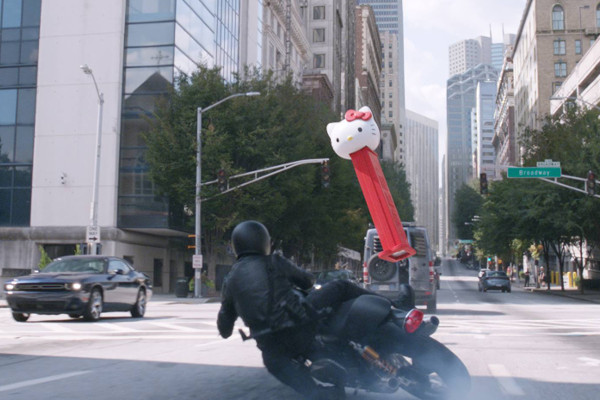
Ant-Man and the Wasp is two hours of characters running around and throwing laboured exposition and glib one-liners at one another. Like the original Ant-Man movie, it's watchable fluff, though, like that film, will also probably fail to contain much rewatch value. The core problem is, even in the "happy meal" ethos of the "Marvel Cinematic Universe", the Ant-Man characters are particularly one-dimensional, meaning any attempt at emotional pay-off falls flat, and director Peyton Reed lacks the visual eye to really make the most of the film's potential.
There's a couple of gay gags in there like it's still the 1980s and, even though the Pez dispenser bit is kind of cute, generally it's a film that doesn't respect its audience with any humour that's not immediately obvious. It's a time-passer with some so-so sequences, but ultimately what shines through a lot of the MCU content is disdain for the audience, a feeling that "it'll do".
Ant-Man and the Wasp was a success for the studio, clocking up over $622m off a sub-$200m budget. While less than half that of Black Panther, it was still a sizeable hit, being a top ten film for most of the year. However, the ultimate tally of the year saw it finally fall to eleventh place, largely due to the unexpected high success of films like Bohemian Rhapsody and Aquaman.
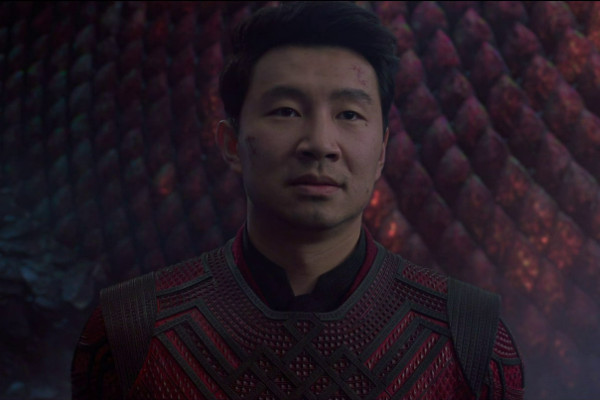
Generally quite dreary kung-fu nonsense that has seen praise for its depiction of Chinese culture onscreen. While having subtitles and questionable depictions of Chinese culture in a Marvel movie is, in a way, to be commended, really you'd be better off watching an actual Chinese film. Marvel movies are many things, but "sophisticated" isn't one of them, and this, with increasingly wearisome "comedy" sidekick, certainly does little to buck the trend.
It can amuse watching Marvel trying to reappropriate one of its less sensitive depictions of a minority into something that's a symbol of Chinese pride. While this may well have taken place in the comics themselves over recent years (I haven't followed the character), Shang-Chi's origin in 1973 saw him as the son of Fu Manchu (no, honestly) who punched a bedridden 90-year-old man in the face and killed him.
This isn't the first Marvel movie to feature an obscure character from the company's roster... the Guardians of the Galaxy were completely unknown to the general public back in 2014. Neither is it the first Marvel movie to feature a character without any powers, even though the explosion-outrunning Black Widow may make you think otherwise. But despite the praise for its depiction of a foreign culture, Shang-Chi is one of the least inspired and inspiring of the characters left to be plundered for the big screen.
At over two hours it drags, but Ben Kingsley gets a few laughs, and Tony Leung is striking as the main antagonist, with a slightly more rounded motivation than most "villains". It's definitely not a terrible entry, and its low placing isn't necessarily a complete reflection upon its worth. The comedy sidekick is no worse than many other comedy sidekicks, the glib humour is no more uninspired than in most of the other entries. Had it come before one of the other identikit "origin movies", it may have ranked above them. But by this stage the well-established "Marvel formula" has become stale, and a fresh approach is required.
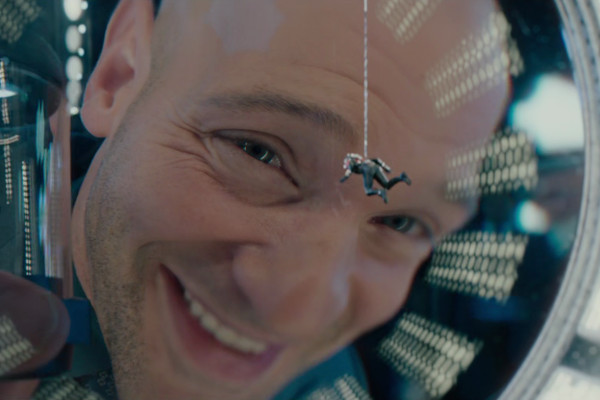
Ant-Man had the unfortunate distinction of being one of just three post-Avengers MCU films up to 2020 not to break the top ten box office during its year of release. While Doctor Strange had a respectable haul of just under $678m and was unfortunate to be released in a competitive year, Ant-Man's $519.3m take from a $142m budget saw it as only a moderate hit. It's a shame, because, as a quirky heist caper it has a certain appeal, and a lot of the vision of original writers Edgar Wright and Joe Cornish appears to have been retained.
However, as the twelfth MCU film to be released, the showcase of yet another "origin" story causes it to lack both serious intrigue and, crucially, rewatch value. There's some interesting elements involved, not least the "quantum realm" (microverse for comic readers) that Ant-Man explores, but it's all very by-the-numbers, lacking the true innovation and wonder that such a hero would require. More crucially, even for a comic book movie the characters are two-dimensional, despite the efforts of all involved, while the villain of the piece is pretty much a cardboard cut-out. Edgar Wright leaving the project as director caused some adverse publicity, but the real issue is the one-note villainy on display from Corey Stoll as the underwritten Yellowjacket. It makes the whole venture a comicbook movie in the worst sense of the term, though it's still far from a terrible movie.
Maybe the ideal solution was not needing to keep Wright as director, but to go with someone truly esoteric; the prospect of a Marvel movie helmed by the likes of David Lynch (RIP) or Jim Jarmusch is as enticing as it is completely unworkable... Marvel Movies are a business, first and foremost, and in 2015 they were heavily invested in playing it safe.
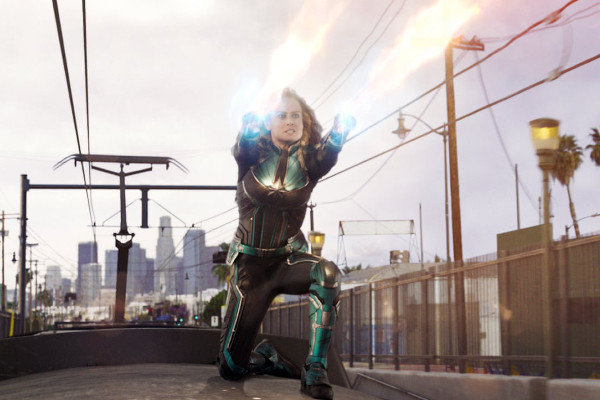
With the news stories politicising this film - from its release on International Women's Day, to Rotten Tomatoes altering their site structure to avoid rigging of their voting system - it's become almost impossible to review Captain Marvel and not talk about the wider issues behind it.
Certainly the negative targetting from males is a factor... while the IMDb has such a large voting pool that any attempts to undermine it are negligible (147,516 votes was the tally when this review was originally written... in April 2025 it's over 635,000), it's notable that the vast majority of 1/10 votes came from men. By the standards of those original 147,516 votes, then altogether less than 3% of female voters thought that the film earned this lowest of scores, whereas over 10% of male voters apparently did.
All of which politicising of what is, ultimately, another mainstream movie when all said and done, makes it feel incredibly uncomfortable to state, as a white male, that this film is merely........... okay. Sure, Brie Larson isn't sexualised like Black Widow is, and there are some nods to independent womanhood, but instead of Marvel patting itself on the back for having its first female-led movie after a decade, it should be embarrassed that it took so long.
As Marvel's first female-led movie, it would be great to rave about it, but it just feels like half a film, existing as a series of continuity-muddying setpieces that unsuccessfully "join the dots" between other Marvel movies, while also retroactively painting Nick Fury as a klutz. That we live in an age where a popcorn chomper like this can be regarded as both a threat to masculinity and a feminist text shows just how messed up the polemic world of 2019 was, and how much further we still need to move forward.
Carol Danvers doesn't know who she is for most of the movie, so by design there's very little to hang onto, even with an Australian Skrull attempting to add some sense of threat to a tensionless movie. It's all very flat, feeling more like a bridging chapter between Infinity War and End Game than a fully-fledged movie in its own right. The exposition that comes with an origin story is all present and correct, and some of the "Easter Eggs" are fun, but this is just an alright film that passes a couple of hours, with the Captain not even getting her full powers until the last few minutes. Who is Captain Marvel? What motivates her? What is she capable of? These are questions you may ask when you start watching the film... and questions you still might ask when you've finished it.